Sound - Thunder Up
by John Clarkson
published: 23 / 11 / 2003
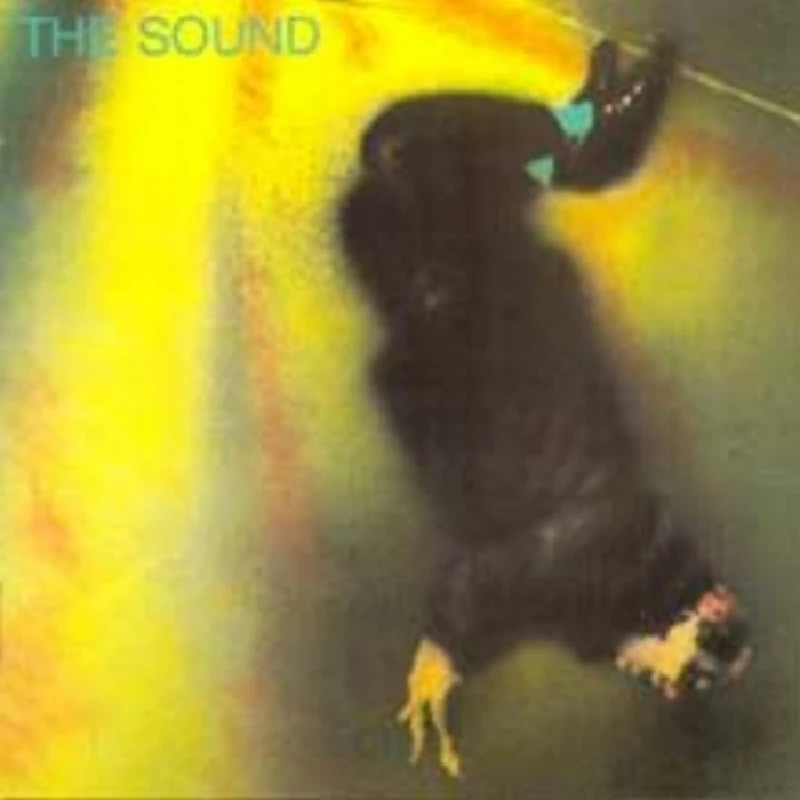
Label:
Select Label
Format: N/A
intro
Despite being the only one of their albums not recently to be re-released, the Sound's sixth record, 'Thunder Up', was seen by the band's members to be their best album. John Clarkson profiles it, and the tragic circumstances in which it was made
The dramatic front cover painting of the Sound's 'Thunder Up' shows a man plummeting to his seeming death from a great height. Closer examination of the picture, and also of the back sleeve onto which it extends, reveals that in the far left hand corner of the painting there is a trapeze artist's swing, and that the man is in fact a clown. Whether the picture is of a suicide jump, or of a circus performer simply doing his job, suddenly becomes much more ambivalent. As a cover for this, the Sound's sixth album, the sleeve could not be any more fitting. Despite its drum-banging title, 'Thunder Up' would be the band's last album, and the group, which had long since declined from being briefly potential stadium-fillers to an obscure indie cult act, would break up within a matter of weeks of its release in November 1987. 'Thunder Up' is a mesh of other contradictions and ambiguities as well. The band's front man Adrian Borland would tell 'The Limit' magazine in an interview a year before his death in 1999 that it was their "very best album". Bassist Graham Bailey would meanwhile describe it to 'Record Collector' in a retrospective feature in 2002 as their "crowning glory." Drummer Michael Dudley would also say in the same 'Record Collector' interview : "It was recorded in the teeth of all the problems that caused us to break up, on a budget of tuppence and a shirt button, yet contains the best songs we ever wrote and Adrian's best ever lyrics." For all this, however, it remains out of all the records in the Sound's oeuvre the least known and most obscure of all their albums. When the Sound's catalogue was re-released in early 2002 by the Renascent label, it was the only one of the six albums because of legal problems not to be repackaged and to receive an overhaul. The Sound's career had begun promisingly eight years before when a few months after forming in early 1979 they signed to Korova, a post-punk offshoot label of Warner Brothers. Two albums, 'Jeopardy' (1980) and 'From the Lion's Mouth' (1981) quickly followed, both of which combined Borland's taut, introspective lyricism with a brassy, anthemic sound. Each album received critical acclaim, but, unlike their more successful label mates at Korova, Echo and the Bunnymen and the Psychedelic Furs, both of whom they shared a degree of musical affinity with, the Sound inexplicably were never picked up upon by the musical public at large. Korova tried to push them into putting together something more chart-friendly. The Sound retorted by recording in direct defiance to Warners' orders' 'All Fall Down', a stark and discordant and totally uncommercial electro album. They were almost immediately dropped. For their fourth album, 'Heads and Hearts' (1985), the Sound, their major label career at an end, relocated to Statik, a medium-sized 80's independent label. Lacking the authority and the weight of the other albums, 'Heads and Hearts' was a largely bland offering, which had few strong songs and also suffered from weak production. The group's fifth album, the fiery 'In the Hothouse' (Statik, 1986), a double live album recorded over the course of two nights in August 1985 at the London Marquee, helped to restore the balance, but it was almost entirely retrospective, and it was 'Thunder Up', which marked the band's full return to form. Released on the Dutch label Play It Again Sam (PIAS) after Statik went into liquidation, 'Thunder Up' is the most diverse of all the Sound's albums and strikes a middle balance between the pumped-up adrenalin rock of 'Jeopardy' and 'From the Lion's Mouth', and the more subdued, bleak experimentations of 'All Fall Down'. The musicianship is never less than impressive. Borland's brittle guitar work and impassioned vocal performance; Bailey's terse bass playing and Dudley's elaborate drumming and sophisticated sense of timing are all worthy of note. Keyboardist Max Mayers' atmospheric synthesisers meanwhile augment the rest of the group and act as a channel for the other three members to follow between the more up-tempo songs of the first part of the album and the darker-sounding, more downbeat tracks that conclude it. It is, however, Borland's lyrics that are the real tour-de-force. As the Sound's fortunes had begun to wane and they played to increasingly diminishing audiences, the always sensitive Borland had started to display symptoms of manic depression. In 1986 he was diagnosed as having a schizoid affective disorder. There were periods every other year or so after that in which he would temporarily lose touch with reality, and would hear voices in his head. There were spells too of hospitalisation. An up-down, black-white, all-or-nothing swirl of emotions, 'Thunder Up' found Borland looking with both hope and fear to the future, and examining with unflinching honesty both his band's long, slow demise and the direct effects of his illness. "The flames will flicker and the writing will waver/But there's something in this somewhere that's going to go on forever" he sings as a rallying cry to his group on the rabble-rousing, swaggering opener, 'Acceleration Group'. Yet elsewhere he knows that it is probably all over. "Don't say there's a time and place/for everyone who waits/It's a load of lies" he spits acidulously near the beginning of the album's one single, the deceptively breezy 'Iron Years'. For all its early pessimism, however, this track nevertheless concludes more hopefully with Borland trying to pull himself out of a quagmire of depression ("I know you well/I know you gonna get there/I know you well/I know you will be there") The jagged, kranky 'Prove Me Wrong ' finds Borland admitting to himself that his illness and his decision to stick at making music whatever the odds will probably destine him to a life of solitude (" There's a logic to a lonely life/Away from all I've known/If no one sees things you way/You can still see them alone"). 'Barria Alta', Michael Dudley's favourite ever Sound song, in contrast, is sultry and charming, and is about overcoming and rising above negative influences, but also has Borland confessing that depression has had its toll ("I’ve lost some sensitivity/Maybe you can see the scars"), It is, however, the metallic, discordant 'Shot-up and Shutdown' that perhaps best describes Borland's often anguished medical condition. At one level a blatant attack on the Thatcher government which had then just been re-elected to its third time in power ("Most of England is sleeping in the sun but not everyone"), it also details the full-scale physical agony of a breakdown ("I feel like a piece of wood/My arms don't do what I want them to/And my legs don't do what they should/I feel like summer thunder/Shot-up and shutdown in a shut-up shop town"). 'Thunder Up' was essentially about a man clawing his way back from the edge, desperately trying to make sense of his life in all its confusion and to save the band that he loved. It is especially poignant as Borland, Mayers and the Sound were all not to survive. The group began a European tour in November 1987 to coincide with the release of the album. The first date was at a club called the End in Vittoria in Spain. Borland, who had long had a Jim Morrison and Doors obsession, took this to be an omen, and flipped out and had a breakdown. All of the rest of the tour had to be cancelled, other than some dates in Holland, which the Sound, with Borland still in emotional turmoil, three weeks later lacklusterly fulfilled for contractual reasons. Almost immediately the tour was over, Dudley, wearying of some of the other internal politics of the band, and worried about the long term effects being in a group was having on his friend's fragile state of mind, quit. The Sound limped briefly on, but, unable to find a suitable replacement to match Dudley, quietly imploded in the early weeks of 1988. Mayers, like Borland, is dead. He was diagnosed as being HIV positive in the early 90's and died from an AIDS-related illness on Boxing Day in 1993. Bailey and Dudley give occasional interviews about the Sound, but quit the music business after the Sound broke up. Dudley works in occupational psychology, while Bailey who emigrated in 1994 after marrying an American, is employed by a New Orleans TV station. Borland began a solo career, and released five low-key albums. He lived for a while in Haarlem in Holland, a country where the Sound has always been better appreciated, but by early 1999 had moved back to Britain to live at his parents' house in Wimbledon in South London. A missive published on the 18th March on his website five weeks before his death found him in good spirits and excited about his sixth solo recording, 'Harmony and Destruction', which he was due to begin recording. It concluded with the words : "To those that still care, thanks, you'll be hearing from me ! Adrian Borland P.S. Sane, as we speak." On Friday 23rd April, with 'Harmony and Destruction' nearly completed, he began to show signs in the studio of depression and agitation again, but promised to go home to rest before concluding work on the album on the Monday. A visit to an ex-girlfriend on the Sunday, however, further tipped the balance. In the early hours of Monday 26th April, Borland was found in a restaurant in nearby Kennington, confused and hearing voices, and was brought home in a police car. His elderly parents wanted to call a doctor, but Borland, who had a horror of being sectioned again, insisted that he did not want to seek medical treatment until he had finished work on the album later that day. He disappeared though again that night. He had tried to commit suicide before, but this time was successful. He died later on that morning by throwing himself in front of a train at Wimbledon tube station. He was aged 41. The story of Adrian Borland and the Sound remains one of the saddest and most tragic in rock 'n' roll. While the Sound have recently been the subject of a resurgence of interest with the Renascent re-releases, 'Thunder Up', in an unfortunate final twist of fate, despite all its rich complexities, remains the band's unsung masterpiece. "We decided that we couldn't do a better album than 'Thunder Up' " said Bailey in the 'Record Collector' interview, talking about the Sound's break-up. "And would rather quit at the peak. How many bands do you know that should have quit years ago, instead of churning out all this stale crap ?" With all that had already gone, and all that was was still to come, there is some small cold comfort in that. While Renascent was not able to re-release 'Thunder Up', a small number of copies of it are available from their website www.renascent.co.uk. More information about Adrian Borland and the Sound can be found there and also at www.brittleheaven.com
Track Listing:-
Band Links:-
http://www.brittlehaven.comPicture Gallery:-

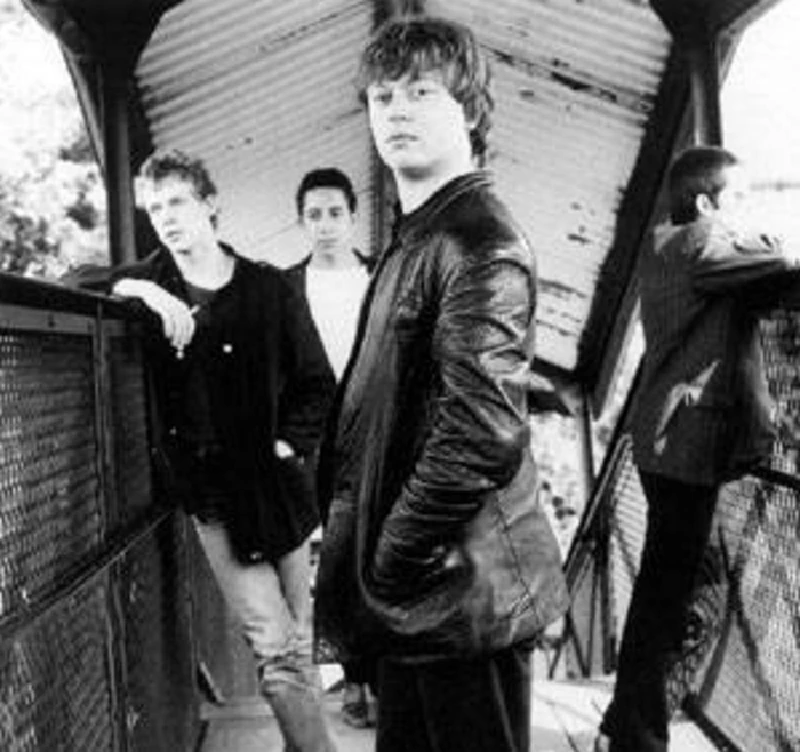
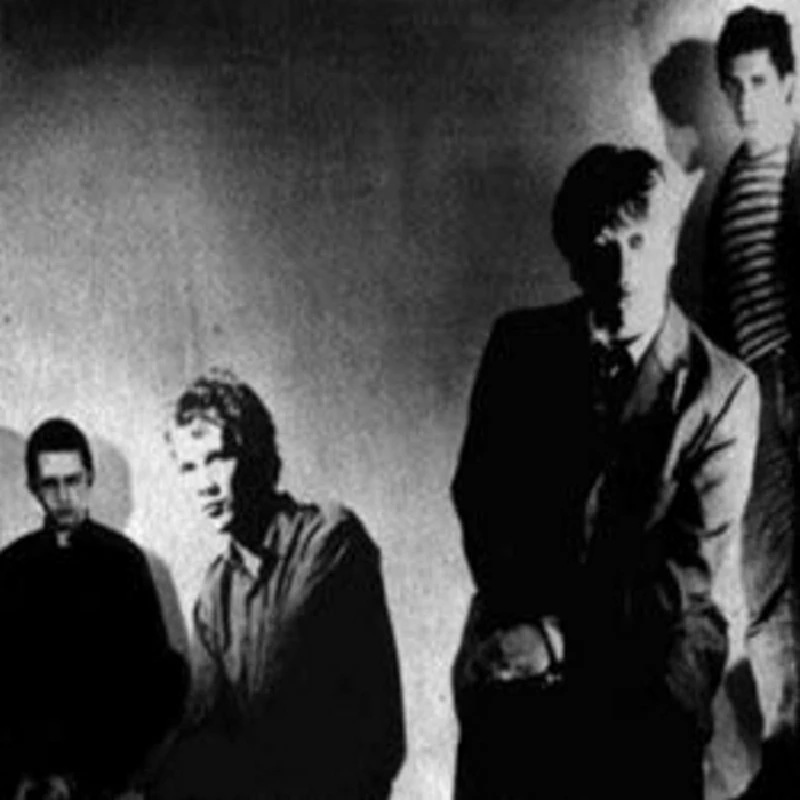
interviews |
|
Interview with Bi Marshall Part 1 (2014) |
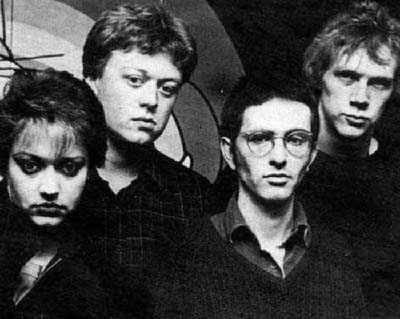
|
| In a two part interview, both parts of which we are publishing consecutively, John Clarkson speaks to Bi Marshall, the original keyboardist with 80's new wave/post punk act The Sound, about her former band and its late front man, Adrian Borland |
| Interview with Bi Marshall Part 2 (2014) |
| Interview (2004) |
features |
|
Competition (2015) |
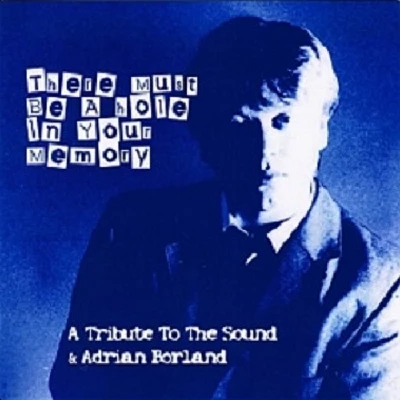
|
| In our competition, we have ten copies to give away of 'There Must Be a Hole in Your Memory', a seventeen song tribute CD, which has compiled by Canadian label, the Beautiful Music, and is otherwise at the moment unavailable |
| Dutch Radio Recordings (2006) |
most viewed articles
current edition
Carl Ewens - David Bowie 1964 to 1982 On Track: Every Album, Every SongBathers - Photoscapes 1
Colin Blunstone - Thalia Hall, Chicago, 16/7/2025
Visor Fest - Valencia, Spain, 26/9/2025...27/9/2025
Billie Eilish - O2 Arena, London, 10/7/2025
Bathers - Photoscapes 2
Sir Tim Rice - Interview
John McKay - Interview
Editorial - July 2025
Armory Show - Interview with Richard Jobson
previous editions
Heavenly - P.U.N.K. Girl EPTrudie Myerscough-Harris - Interview
Pixies - Ten Songs That Made Me Love...
Beautiful South - Ten Songs That Made Me Love...
Simon Heavisides - Destiny Stopped Screaming: The Life and Times of Adrian Borland
Oasis - Oasis, Earl's Court, London, 1995
Boomtown Rats - Ten Songs That Made Me Love....
Blues and Gospel Train - Manchester, 7th May 1964
Prolapse - Interview
Paul Nelson - Interview
most viewed reviews
current edition
Amy Macdonald - Is This What You've Been Waiting For?Sick Man of Europe - The Sick Man of Europe
Alice Cooper - The Revenge of Alice Cooper
Phew, Erika Kobayashi,, Dieter Moebius - Radium Girls
Lucy Spraggan - Other Sides of the Moon
Blueboy - 2
Cynthia Erivo - I Forgive You
Davey Woodward - Mumbo in the Jumbo
Lapsley - I'm a Hurricane, I'm a Woman In Love
Philip Jeays - Victoria
related articles |
|
Moon Under Water: Interview (2019 |
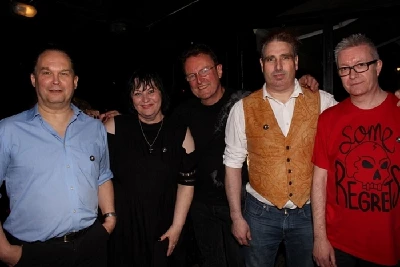
|
| John Clarkson speaks to Moon Under Water about their unusual beginnings after forming at an Adrian Borland tribute night, their memories of him and their plans for an album of original material. |
| Adrian Borland 20th Anniversary Tribute: Photography (2019) |
| Adrian Borland 20th Anniversary Tribute: Photography (2019) |
| Jean-Paul van Mierlo: Interview (2016) |
Pennyblackmusic Regular Contributors
Adrian Janes
Amanda J. Window
Andrew Twambley
Anthony Dhanendran
Benjamin Howarth
Cila Warncke
Daniel Cressey
Darren Aston
Dastardly
Dave Goodwin
Denzil Watson
Dominic B. Simpson
Eoghan Lyng
Fiona Hutchings
Harry Sherriff
Helen Tipping
Jamie Rowland
John Clarkson
Julie Cruickshank
Kimberly Bright
Lisa Torem
Maarten Schiethart